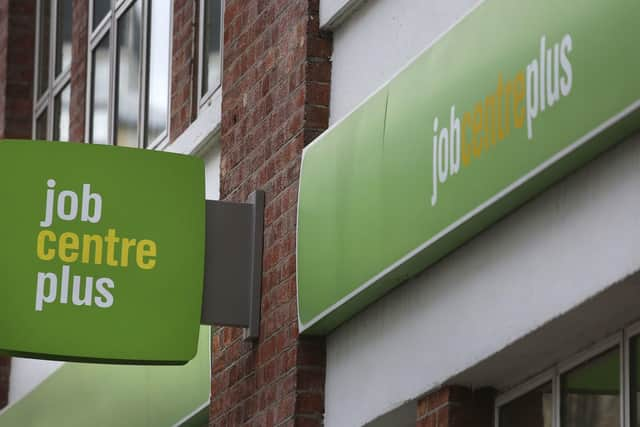The Lothians area facing the most severe job cuts due to Covid-19 recession
and live on Freeview channel 276
And the analysis by think tank the Social Market Foundation has revealed that West Lothian is likely to be the worst-hit area, with the proportion of jobs facing a moderate or severe impact is as high as 71 per cent – just 8 per cent behind the worst hit area of Camden in London.
Edinburgh is eighth worst-hit in the Scottish list at 64 per cent.
Advertisement
Hide AdAdvertisement
Hide AdThe coronavirus recession is likely to hit London hardest, but areas which already had high levels of unemployment going into the crisis may face longer-lasting damage, according to Social Market Foundation (SMF).


The SMF report warns the UK faces a “sluggish” recovery after the severe economic impact of lockdown and that banking and financial services face a severe impact, with construction also likely to be badly-hit over the next three years. Other industries, including transport, manufacturing, hospitality and other services are assessed as facing a “moderate” impact over the medium term.
Behind West Lothian, Orkney is second on the Scottish list at 68 per cent, followed by Falkirk on 67 per cent.
Glasgow comes next on 65 per cent, along with North and South Lanarkshire, and then Edinburgh on 64 per cent. The least-affected areas are South Ayrshire on 57 per cent, with the Western Isles, Aberdeen and Aberdeenshire on 58 per cent.
Advertisement
Hide AdAdvertisement
Hide AdAccording to the report more than two thirds of UK jobs are in sectors that face a moderate or severe impact from coronavirus over the next three years, with the result that people employed in industries facing severe negative impacts such as banking, finance, insurance and construction are at greater risk of unemployment and reductions in wages and hours. Workers in mildly impacted industries like public administration, education and health, energy, water and agriculture are least likely to face job losses.
The SMF report said: “The places that face the greatest impact from the downturn are largely in the more affluent South East and London. However, an area's recovery from disruption will depend on local resilience and pre-crisis levels of economic output and employment.”
It added: "Our view is that the UK economy will take on a sluggish U-shaped recovery. The possibility of a returning surge of coronavirus, enforced social-distancing measures and a withdrawal of the government's fiscal response will likely exacerbate common recession-induced behaviour changes, such as reduced consumer confidence and spending."
The SMF said forecasters predicted unemployment could increase by 1.5 million due to the crisis, leaving a total of around 2.9 million out of work. “The consensus of recent forecasts suggests that unemployment will not recover to previous levels until after 2023,” the report said.
Advertisement
Hide AdAdvertisement
Hide AdResponding to the report Scottish Liberal Democrat MSP Alex Cole-Hamilton said: “While we know that the virus can strike anywhere, these figures suggest that some areas are more economically vulnerable than others.
“The Scottish Government must make sure that every corner of Scotland has the support it needs to survive and thrive. No one must be left behind.”
Comment Guidelines
National World encourages reader discussion on our stories. User feedback, insights and back-and-forth exchanges add a rich layer of context to reporting. Please review our Community Guidelines before commenting.